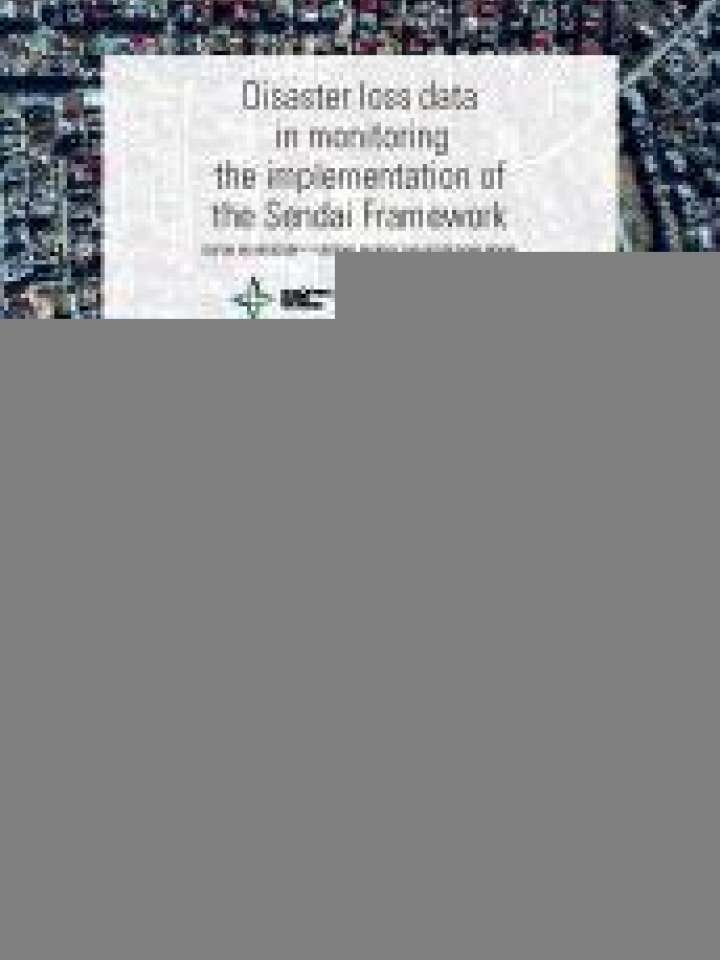Disaster loss data in monitoring the implementation of the Sendai Framework
This brief presents policy recommendations on disaster loss data. The disaster data landscape is a complex one, though information on loss data is rapidly growing. When human, monetary or environmental losses occur as a result of a disaster, extensive loss data are often collected and stored by different organizations, but the thoroughness and accuracy of the data vary from country to country and even among local entities. While many methods do exist, there is no standard that introduces a reasonable level of comparability into the resulting assessment results. This leads to gaps and overlaps in the data, and biases that ultimately affect the quality of research conducted and policies made on the basis of the data.
Policy recommendations on disaster loss data therefore include:
- Strengthening collaboration between partners in academic, government and disaster management organizations at the global, national and local levels, as well as within the public and private sectors, for monitoring the Sendai Framework and its Global Targets.
- Establishing basic data infrastructure for disaster loss data in developing countries and supporting regional and global cooperation for disaster loss reporting.
- Standardizing approaches for disaster loss data quantification methods and loss data collection systems (i. e. databases) in order to obtain reliable loss estimates that will support higher-level strategic objectivevs of disaster loss analyses (De Groeve et al. 2014).
- Sharing technology and innovations for the common good through the creation of a global network to bring together organizations and experts for providing technical guidelines to ensure that data provided in support of the indicators for the Sendai process is as reliable and usable as possible.
- Identifying critical research gaps and engaging researchers and policy-makers in the development of data tools and algorithms to better capture and evaluate data (IAEG, 2014).
- Creating incentives to leverage resources, innovation and creativity of the private sector in data collection and reporting.
- Promoting the accessibility and exchange of disaster data from multiple data repositories.
- Consulting with relevant agencies and communities, and establishing a disaster data copyright protection and acceptable use policy to ensure the legality and appropriate use of data during disaster mitigation.
Explore further
